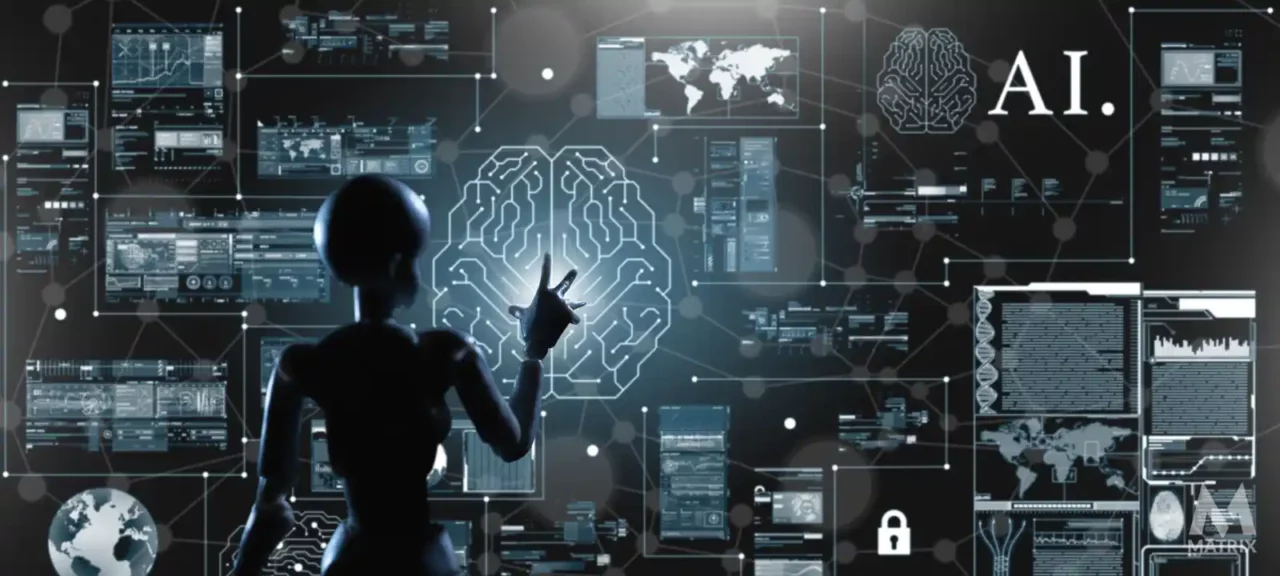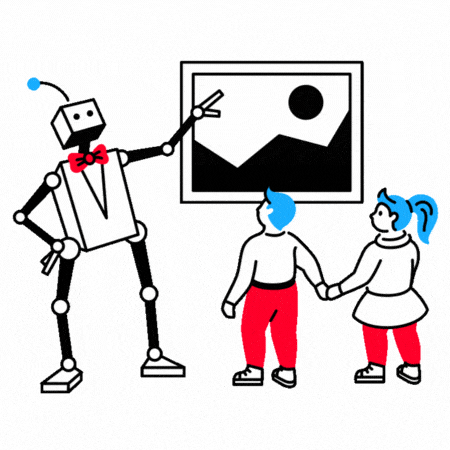Comprehensive Guide to Microsoft AI
Learn From Our Comprehensive Outline for a Guide to Microsoft AI.
Are you looking for a comprehensive guide to Microsoft AI? Whether you’re a CEO needing an overview of this powerful technology, or a professional seeking more in-depth knowledge, our outline will provide the resources and insight to understanding everything there is to know about Artificial Intelligence.
This guide covers topics ranging from improving efficiency & accuracy with automation, increasing productivity with predictive analytics, incorporating tactics for cost savings, and transforming customer experience into meaningful engagement.
Learn how Microsoft can help your business leverage AI technology to gain a competitive advantage in the digital age. We included something for everyone: Microsoft copilot, Azure OpenAI service, responsible ai standard, and Microsoft announcing AI partnerships.
Comprehensive Outline for a Guide to Microsoft AI
Artificial Intelligence (AI) has become a crucial piece of the puzzle in the rapidly advancing world of technology. A comprehensive guide is essential for those looking to dive into the world of AI, specifically with Microsoft.
A guide to Microsoft Artificial Intelligence opens the door to new opportunities and provides a foundation for understanding the inner workings of this incredible technology.
Through this guide, users can learn about various tools, such as Azure Machine Learning, Cognitive Services, and Bot Framework, to name a few. With Microsoft leading the charge in AI innovation, there’s no better time to explore this exciting field and learn how to leverage its capabilities.
I. Introduction to Microsoft AI

Artificial Intelligence, or AI, is a rapidly expanding field of technology that has already begun to change how we interact with computers and the world around us.
One of the industry leaders in this space is Microsoft. With its AI technology, Microsoft aims to empower people and organizations to achieve more by delivering intelligent, natural, and intuitive experiences.
By utilizing machine learning, computer vision, and other cutting-edge technologies, Microsoft AI is revolutionizing how we think about data and how it can be used to shape the future.
Whether you’re a developer looking to build new AI-powered products or a business owner looking to improve productivity, Microsoft AI has the tools and resources to turn your ideas into reality.
A. Overview of AI and Machine Learning
Artificial intelligence and machine learning are among the most fascinating topics in modern technology. AI algorithms can independently learn, reason, and solve problems without human intervention.
Machine learning is a subset of AI that involves training computers to recognize patterns in data and make predictions based on that information.
These technologies are revolutionizing how we live and work, and their impact can be seen in everything from self-driving cars and virtual assistants to personalized medical treatments and fraud detection systems.
As we continue to explore the potential of AI and machine learning, the possibilities for innovation and advancement are endless.
B. History and Evolution of Microsoft AI

Microsoft has roamed the artificial intelligence space for quite some time. Its AI journey has been nothing short of spectacular.
Over the years, Microsoft has engineered cutting-edge AI models and tools that have allowed businesses worldwide to leverage AI to enhance their operations.
The history of Microsoft AI dates back to the early 2000s when the company launched a project named “Cortana.” Since then, Microsoft has never looked back.
The company has continually been at the forefront of innovation and has embraced AI advancements with open arms.
From chatbots to machine learning algorithms, Microsoft has built an impressive portfolio of AI-powered solutions that have revolutionized how businesses operate today.
C. The Importance of AI in Today’s Digital Age
As we navigate the digital age, it’s becoming clear that Artificial Intelligence (AI) is not just a passing trend but an essential part of our everyday lives.
From Siri and Alexa to personalized ads and newsfeeds, AI technology is constantly working behind the scenes to make our experiences online more efficient and tailored to our needs. Experts predict that AI will continue transforming industries and improving various aspects of our lives, from healthcare and education to transportation and finance.
While there are concerns about AI’s ethical and societal impacts, its potential benefits cannot be ignored. With AI at our fingertips, the possibilities are truly endless.
II. Understanding Microsoft AI

As technology advances, Microsoft AI is at the forefront of innovation in artificial intelligence. Understanding this technology is more important now than ever before.
Microsoft AI has opened doors for businesses and individuals to leverage the power of machine learning and automation to improve efficiency, productivity, and decision-making. With applications ranging from healthcare to finance, the possibilities are endless.
The EN-US output language code ensures that language barriers are broken down, allowing Microsoft AI to be accessible to people worldwide. As we continue to explore this rapidly evolving field, it’s clear that a comprehensive understanding of Microsoft AI is key to unlocking its full potential.
A. The Core Principles of Microsoft AI
Artificial Intelligence (AI) is a rapidly growing field that has significantly influenced how technology operates today.
Microsoft is a leader in the AI space, and the company’s Core Principles of AI outline the ethical and intuitive components that govern their approach to AI development.
First and foremost, anyone interacting with Microsoft’s AI technology should expect it to operate with strong, reliable security protocols to protect user privacy and data integrity. Additionally, they aim to be transparent and accountable in their work, ensuring that AI is a tool to augment human intelligence and decision-making without detracting from the dignity and autonomy of individuals.
The principles guide Microsoft’s AI development and provide a framework for ethical and responsible technology innovation.
B. AI Ethics in Microsoft
As artificial intelligence continues to revolutionize our world, companies like Microsoft are grappling with the ethical implications of this powerful technology.
In particular, Microsoft has been working to establish guiding principles for the responsible development and use of AI within their business and the industry.
These principles cover various critical topics, from privacy and accountability to transparency and fairness. Microsoft is demonstrating its commitment to ensuring these cutting-edge technologies serve society responsibly and beneficially by taking a leading role in AI ethics.
C. Different Fields of AI Microsoft Engages In
Artificial Intelligence (AI) is undoubtedly one of modern technology’s most fascinating and rapidly growing fields.
Microsoft is one of the leading tech giants that have poured a lot of resources into exploring the limitless possibilities of AI. In the quest to make strides in this cutting-edge technology, Microsoft has engaged in diverse fields of AI, including natural language processing, speech recognition, and image recognition, among others.
The company’s involvement in these AI fields has culminated in the development of intelligent machines that can perform a wide range of tasks, from identifying human emotions to improving speech synthesis.
As the company continues to push the frontiers of AI, it is exciting to think of the endless potential these technological advances could bring about in our everyday lives.
1. Machine Learning
is an exciting and rapidly-evolving field that shows great promise in enabling machines to perform complex tasks with minimal human intervention.
Using advanced algorithms and vast amounts of data, computers can recognize patterns, predict outcomes, and learn from their mistakes.
From self-driving cars to personalized healthcare, the potential applications of machine learning are virtually limitless, and it’s no wonder that more and more companies are investing resources in this innovative technology.
As the field advances, we expect to see even more groundbreaking applications emerge, revolutionizing how we live and work.
2. Natural Language Processing

Natural Language Processing, more commonly known as NLP, refers to the field of computer science that focuses on teaching machines to understand and interpret human language.
This complex technology analyzes and processes vast amounts of written and spoken language, allowing computers to comprehend and respond to human text and speech accurately.
One important aspect of NLP is output language code, the specific code that determines the language of the output.
EN-US is one such code, indicating that the output will be in English as spoken in the United States. With advances in NLP, machines are becoming increasingly capable of understanding and communicating with humans more naturally and intuitively.
3. Computer Vision
Computer vision is a fascinating field of study that teaches computers to see and interpret images as humans do. Computer scientists can create machines that recognize faces, objects, and even entire scenes by developing algorithms and advanced image-recognition systems.
This groundbreaking technology has many practical applications, from improving security and manufacturing to enhancing medical diagnoses and unlocking new insights into human behavior. As computer vision continues to evolve, it can potentially transform our world in countless ways.
Whether it’s helping us better understand the natural world or revolutionizing how we interact with our devices, the possibilities are truly exciting.
4. Predictive Analytics
Predictive analytics is revolutionizing how we make business, healthcare, and even sports decisions. Predictive analytics can accurately forecast future outcomes by examining historical data and using statistical algorithms.
For instance, a retailer can use predictive analytics to predict future sales based on consumer trends and demographics. In healthcare, predictive analytics can aid in disease prevention and the early detection of illnesses.
Even sports teams use predictive analytics to evaluate players and improve their performance on the field. With such a broad range of applications, it’s no wonder that predictive analytics is becoming an essential tool in various industries.
5. Robotics and Autonomous Systems

Imagine a world where robots and autonomous systems work seamlessly with humans to create a better and more efficient future.
This is the realm of Robotics and Autonomous Systems, where machines are designed to perform a wide range of functions with minimal human intervention.
From manufacturing assembly lines to space exploration, robotics is revolutionizing our world in ways we couldn’t have imagined even a few decades ago.
With the rise of the Internet of Things (IoT) and advances in artificial intelligence, the possibilities for autonomous systems are endless. While many challenges still exist in the field, the promise of a future where machines and humans work together to achieve great things is an exciting prospect.
III. Microsoft AI Technologies and Platforms
Microsoft is known for constantly pushing the boundaries regarding AI technologies and platforms. With their vast resources and talented team of developers, they can create innovative solutions that revolutionize the way we interact with technology.
From intelligent chatbots to personalized recommendations, Microsoft is working hard to make AI accessible and useful for everyone. Their commitment to advancing the field of AI is second to none, and their progress in this area is something to keep an eye on.
As they continue to develop groundbreaking technologies, we can expect to see even more exciting advancements from Microsoft in the coming years.
A. Azure AI
The cutting-edge Azure AI technology is making waves across industries, revolutionizing how businesses operate.
Its advanced language capabilities have become invaluable for communication across borders and languages.
One of its standout features is the Output Language Code feature, which ensures that content is translated accurately and efficiently. This means businesses can communicate seamlessly with people worldwide, improving their global reach and boosting their bottom line.
Azure AI is undoubtedly cementing its place as an essential tool for companies looking to stay ahead of the curve and their competition.
1. Overview and Use Cases
EN-US is a code used to represent the English language in the United States. It can be used in various contexts, including software programming, website design, and document translation.
For programmers, using EN-US ensures that American users easily understand their code. In contrast, website designers can use it to ensure their content is accessible and easy to read for American audiences.
Additionally, EN-US is often used in document translation to ensure that the English used is appropriate for American audiences, considering regional variations in spelling, grammar, and vocabulary.
Overall, EN-US is an essential tool for anyone looking to communicate effectively in English to American audiences.
2. Azure Machine Learning
Azure Machine Learning is a powerful tool that enables users to build and deploy models easily. This state-of-the-art platform allows you to create intelligent applications to analyze complex data sets and make accurate predictions.
With Azure Machine Learning, you can harness the power of cloud computing to streamline your workflow and achieve your business objectives faster.
Whether you are looking to optimize your production processes or improve customer experiences, this cutting-edge technology provides the tools you need to succeed.
So why not unlock the power of machine learning today and take your business to the next level with Azure Machine Learning?
3. Azure Cognitive Services
Azure Cognitive Services is a revolutionary technology that has the potential to change the way we interact with computers.
One of the standout features of this system is its ability to translate text between different languages. With the Output Language Code set to EN-US, businesses can cater to a wider audience by communicating with customers in their preferred language.
This is an essential tool for companies that operate on a global scale and want to connect with customers on a more personal level. Azure Cognitive Services can give businesses a competitive edge by helping them overcome language barriers and easily enter new markets.
Whether communicating through documents, chatbots, or virtual assistants, the possibilities are endless with this cutting-edge technology.
B. Power BI and AI
Business intelligence (BI) has long been essential for companies to make informed, data-based decisions. But with the integration of artificial intelligence (AI) in BI tools like Power BI, the capabilities have become even more powerful.
With AI, businesses can now analyze data in real-time, identify patterns, and generate predictive insights to stay ahead of the competition.
Power BI’s AI features add another layer of sophistication to traditional BI methods, allowing companies to make more informed decisions and take strategic actions.
The marriage of Power BI and AI is an innovation that is transforming the business landscape and creating tremendous value for companies of all sizes.
1. Overview and Use Cases on Microsoft AI
As technology continues to develop, we are seeing more and more impressive advancements in the realm of artificial intelligence. One of the big players in this field is Microsoft, whose AI technology has been integrated into a wide range of applications.
From personalized recommendations on Netflix to virtual assistants like Cortana, Microsoft AI has proven itself to be incredibly versatile and effective. In addition to these consumer-facing use cases, Microsoft AI is also being leveraged in industries like healthcare and finance to drive innovation and improve outcomes for patients and customers.
Regardless of the use case, though, the power and potential of Microsoft AI cannot be ignored.

AI Foundational Models for Industry
💡Discover the Power of Microsoft AI Today!💡
Don’t struggle with AI implementation alone. Whether you’re a budding startup or a large-scale enterprise, our expert team will guide you through your Microsoft AI journey.
We understand the intricacies of Azure AI, Azure Machine Learning, Cortana Intelligence Suite, and other Microsoft tools, and we’re excited to help you maximize your potential.
Contact us now to schedule your free consultation and experience how our support can transform your business with Microsoft AI.
2. Power BI’s AI capabilities
Power BI has taken its capabilities to the next level by integrating artificial intelligence (AI) into its platform. With the ability to analyze, visualize, and share data across different teams and departments, Power BI’s AI capabilities allow businesses to make smarter, data-driven decisions.
From detecting anomalies in data to predicting future trends, the AI features provide insights that might have gone unnoticed.
With its easy-to-use interface and customizable dashboards, Power BI’s AI capabilities give businesses the power to unlock meaningful insights from their data and drive success.
C. AI in Microsoft Office 365
With the development of artificial intelligence, Microsoft Office 365 has become even more efficient and user-friendly.
Its AI capabilities allow for personalized and intuitive experiences catering to an individual’s needs. From automated email responses to intelligent data analysis, Microsoft Office 365’s AI tools provide a seamless workflow for businesses and individuals.
Plus, with the added feature of output language code EN-US, the platform’s global reach and accessibility are unparalleled. Whether you’re a small business owner or an international corporation, Microsoft Office 365’s AI tools make day-to-day tasks more manageable and ultimately increase productivity.
1. Overview and Use Cases AI in MS 365
Artificial intelligence has revolutionized our technology use, and Microsoft 365 is no exception.
The integration of AI in Microsoft 365 has brought an array of exciting possibilities for businesses and individuals alike. From improved productivity to enhanced efficiency, Microsoft 365’s AI capabilities have expanded the software’s usability to new heights.
Whether you’re looking to automate your workflow or gain new insights from data, the use cases for AI in Microsoft 365 are vast and varied. So, if you’re looking to take your productivity to the next level, exploring the AI features in Microsoft 365 is a must!
2. AI capabilities in Microsoft Office 365
Microsoft Office 365 has been revolutionizing the world of office productivity for years, and now it’s taking things to the next level. Thanks to its integration of artificial intelligence (AI) capabilities, Office 365 is smarter and more intuitive than ever before.
Whether you’re using Word, Excel, PowerPoint, or any other powerful tools in the suite, you’ll benefit from features like automatic translation, intelligent formatting suggestions, and more.
And with AI-based tools like Microsoft Graph, you can draw insights from your data like never before, making better decisions and unlocking new opportunities for growth. Put, Office 365 is the future of productivity – and AI is the driving force behind it.
D. AI in Dynamics 365
Artificial Intelligence (AI) has revolutionized many industries, and Dynamics 365 is no exception. The integration of AI into Microsoft’s powerful business management software has brought about incredible improvements in efficiency, productivity, and decision-making.
By leveraging the power of AI, Dynamics 365 is now better equipped than ever before to automate routine business tasks, make accurate predictions, and provide real-time insights into everything from customer behavior to supply chain management.
Whether you’re a small business owner or the CEO of a multinational corporation, Dynamics 365 with AI can help you gain a competitive edge and take your business to new heights.
1. Overview and Use Cases Dynamics 365
Dynamics 365 is a powerful tool that offers a range of capabilities to businesses of all sizes. From sales and marketing to customer service, Dynamics 365 allows for a seamless integration of all essential business processes.
But what exactly are the use cases of this dynamic platform? For starters, Dynamics 365 can help streamline customer engagement by bringing together customer data across channels, helping businesses offer more personalized experiences.
Additionally, Dynamics 365 can help optimize operations by providing real-time insights into workflow performance, empowering organizations to make more informed decisions. With Dynamics 365, businesses can enhance their overall productivity and drive growth in a rapidly changing industry.
2. AI capabilities in Dynamics 365
Artificial intelligence, or AI, has become an increasingly integral aspect of enterprise resource planning (ERP) software such as Dynamics 365.
Through the use of machine learning algorithms, Dynamics 365 is able to analyze vast amounts of data in real-time and provide businesses with powerful insights that can help optimize performance and reduce costs.
Some of the AI capabilities of Dynamics 365 include chatbots that can autonomously address common customer inquiries, intelligent agents that can predict which customers are most likely to churn, and sophisticated analytics tools that can identify patterns in customer behavior and help improve engagement.
With Dynamics 365’s AI capabilities, businesses can stay ahead of the competition and make better-informed decisions.
IV. Working with Microsoft AI
The future of technology is an exciting and ever-evolving landscape – especially regarding artificial intelligence.
Microsoft Artificial Intelligence is at the forefront of this innovative industry, providing users with powerful tools to build intelligent applications. One helpful feature is the Output Language Code – specifically the EN-US code option.
This code ensures that your AI-powered output will be delivered in clear, concise English – making it easy for users to understand and engage with your product.
Investing in this type of technology can significantly impact the success of your business or project, and Microsoft Artificial Intelligence is leading the way in making these tools accessible to all.
A. Required Skills for Working with Microsoft Artificial Intelligence
As artificial intelligence becomes more integrated into our daily lives and work, it is increasingly important that individuals possess the necessary skills to work with this technology effectively.
Specifically, regarding Microsoft AI, several required skills can help professionals excel in their roles.
These may include a deep understanding of programming languages such as Python and R, familiarity with machine learning algorithms and statistical models, proficiency in data analysis and visualization techniques, and the ability to adapt and learn new technologies quickly.
By honing these skills and staying up-to-date with the latest developments in Microsoft Artificial Intelligence, individuals can not only stay relevant in their careers but also contribute to advancing this exciting field.
B. Training and Certifications for Microsoft AI
As the field of artificial intelligence continues to grow and evolve, it’s become increasingly important for professionals to stay up-to-date with the latest training and certifications available.
For those interested in Microsoft AI, there are numerous opportunities to enhance their skills and increase their expertise in this rapidly advancing area.
From online courses covering the fundamentals of AI to advanced training in machine learning and cognitive services, Microsoft offers a wide range of resources designed to help professionals stay ahead of the curve. With certification programs available for both technical and non-technical roles, there’s something for everyone looking to expand their knowledge and proficiency in Microsoft Artificial Intelligence.
C. Getting Started with Microsoft AI – Step by Step
Are you looking to dive into the exciting world of AI with Microsoft? Look no further because we have a step-by-step guide sure to get you started on the right foot.
You can unlock endless possibilities for your business, school projects or personal interests.
The first step is to understand the basics of what AI is and how it works. Afterwards, you can explore the various AI tools that Microsoft offers, including Azure Machine Learning, Cognitive Services, and the AI Platform.
Follow our guide and you’ll be well on your way to utilizing the power of Microsoft AI in no time.
D. Using Microsoft AI Tools: Practical Examples
The world of technology is constantly evolving, and Microsoft is leading the way with its AI tools. These tools offer practical solutions for real-world problems, from chatbots to image recognition.
Whether you are a small business owner or a developer, there is something for everyone in Microsoft’s AI toolbox. With the ability to analyze data sets, identify patterns, and offer insights, these tools are a game-changer for anyone looking to streamline their workflow.
So why not try out Microsoft’s AI tools for yourself and see how they can improve your business or project? The possibilities are endless!
1. Building a Machine Learning Model with Azure ML
With the ever-growing amount of data available to us, it’s becoming increasingly important to be able to efficiently analyze and make predictions based on that data.
That’s where machine learning comes in. And if you’re looking for a platform to build and deploy your machine learning model, look no further than Azure ML. This powerful tool from Microsoft offers a range of capabilities to help you create accurate and scalable models, from data exploration and preparation to model training and deployment.
Whether you’re new to the world of machine learning or an experienced data scientist, Azure ML has everything you need to get started and take your data analysis to the next level. So, dive into Azure ML and start building your machine-learning models today!
2. Implementing a Chatbot with Azure Bot Service
If you’re in the business of providing customer service, you know how important it is to offer a quick and efficient response to customer queries.
A chatbot can be a great solution to help streamline the process and provide that instant support customers are looking for. The Azure Bot Service is an excellent tool to get started with implementing a chatbot.
With its intuitive interface and integration with various messaging platforms, you can create a chatbot in no time. But the best part? You don’t need any coding experience to get started.
The Azure Bot Service takes care of all the technical details, so you can focus on crafting conversations with your customers that will leave them feeling taken care of.
3. Data Analysis with Power BI and AI
In today’s digital age, data analysis has become a crucial element for businesses to stay ahead of their competitors.
Power BI and AI are two of the most powerful tools that are available to businesses for data analysis. With Power BI, businesses can transform their data into interactive and insightful visuals, making it easy to analyze and monitor key metrics.
AI takes the analysis process one step further, providing intelligent insights and predictive capabilities that can help businesses optimize their strategies.
By combining Power BI and AI, businesses can now easily make data-driven decisions and act on the insights gleaned from their data.
4. Utilizing AI in Microsoft Office 365
The integration of artificial intelligence (AI) in Microsoft Office 365 has opened up a world of possibilities when it comes to boosting productivity and efficiency.
Through the use of machine learning and natural language processing, Office 365’s AI capabilities enable users to work smarter, not harder. From intelligent email sorting to personalized calendar management, AI lends a helping hand in streamlining everyday tasks.
Additionally, as AI technology continues to evolve, Office 365 users can expect even more advanced features that can take their work to the next level. With the power of AI at their fingertips, Office 365 users can be confident they are maximizing their time and resources.
V. Future of Microsoft AI
Advancements in artificial intelligence have propelled Microsoft to the forefront of tech progress.
The company’s AI capabilities have been woven into various products and services, from the speech-recognition technology in Cortana to the smart bots in its Dynamics 365 suite. But what does the future hold for Microsoft AI?
With its dedication to machine learning and data analysis, it’s clear that the tech giant is committed to pushing the boundaries of AI and expanding its reach into even more software offerings. One thing is certain: Microsoft’s AI is here to stay, and its ever-growing potential has us excited for what’s to come.
A. Current Trends and Future Developments
In today’s fast-paced world, it’s crucial to stay on top of current trends and future developments. From advancements in technology to changes in societal norms, every industry is constantly evolving.
We are better equipped to adapt and embrace new possibilities by staying informed and aware of these trends. Looking toward the future, we can anticipate even more transformative developments that will challenge our understanding of what’s possible.
Whether it’s the emergence of new industries or the creation of innovative technologies, there’s no doubt that the world will continue to evolve at an unprecedented rate. Staying ahead of the curve is key to navigating these changes with confidence and success.
Don’t struggle with AI implementation alone. Whether you’re a budding startup or a large-scale enterprise, our expert team will guide you through your Microsoft AI journey.
B. Microsoft’s Vision for the Future of AI
Artificial Intelligence has become one of the most significant technological advancements in today’s world.
With the rise of AI, Microsoft has been actively working towards building a future where machines can learn, reason, and communicate like humans.
Microsoft aims to shift from “mobile-first, cloud-first” technology to an “intelligent cloud” that is intuitive, flexible and adaptive.
Along with developing advanced AI tools, Microsoft envisions a future where machines can identify, analyze and respond to human emotions in real time, leading to enhanced understanding and better communication.
With its mission to democratize AI, Microsoft strives to make this technology available to every individual and organization, revolutionizing how we live, work, and communicate.
C. How AI can Transform Businesses – Case Studies
Artificial Intelligence (AI) rapidly transforms the business world by enhancing efficiency and creating innovative solutions.
Businesses can now make informed decisions by analyzing data, resulting in significant cost savings. The implementation of AI in various industries has already resulted in positive outcomes. For example, John Deere, a farm equipment manufacturer, uses AI to gather valuable data on soil moisture, temperature, and yield for farmers, which helps increase crop productivity.
DHL, a leading logistics company, uses intelligent robots to assist their human workforce, which speeds up delivery times.
These are just a few examples of AI’s transformative capabilities on businesses. The possibilities are endless, and as technology continues to advance, we can only expect more innovative solutions to come.
VI. Conclusion Microsoft AI
In conclusion, Microsoft AI has revolutionized the way we interact with technology. Whether through virtual assistants, machine learning algorithms, or natural language processing tools, AI is transforming how we work, play, and communicate.
We can only imagine the exciting possibilities with Microsoft at the forefront of these developments. The future is bright for AI-powered technologies, from personalized healthcare to autonomous vehicles.
Thanks to Microsoft’s commitment to innovation and cutting-edge research, we can look forward to a more connected, intelligent, and efficient world than ever before.
A. Summary of the Guide on Microsoft AI
The Guide on Microsoft AI is a valuable resource for anyone interested in understanding the power of artificial intelligence and how it can be leveraged to drive business success.
The guide provides a comprehensive overview of Microsoft’s AI capabilities and offers practical guidance on how to get started with the technology.
From natural language processing to computer vision, the guide covers a range of AI applications, along with use cases and best practices for implementation.
Whether you’re a seasoned pro or just starting out in the world of AI, the Microsoft AI Guide is a must-read for anyone looking to stay at the forefront of this rapidly evolving technology.
B. Further Resources for Learning about Microsoft AI

As the world of artificial intelligence continues to evolve, keeping up with the latest developments can be daunting.
Fortunately, Microsoft offers a wealth of resources for those seeking to expand their AI knowledge.
From online courses to community forums, Microsoft provides various tools to help learners of all levels stay up-to-date on the latest trends in AI. Whether you’re looking to brush up on the basics or pursue a more advanced understanding of neural networks and machine learning, Microsoft has the resources to meet your needs.
With a little initiative and some help from Microsoft, anyone can become an expert in AI and take their skills to the next level.
As we have seen, Microsoft AI has become an integral part of the technological landscape and is increasingly used to enrich our daily lives.
With the advent of a plethora of different Microsoft AI technologies, platforms and services, understanding its principles and its potential is essential to keeping up with the ever-changing digital world.
Microsoft AI is powered by core principles that drive its focus on ethical implementation and creating smarter technology for everyone.
There are many different fields covered by Microsoft AI, such as Machine Learning, Natural Language Processing, Computer Vision, Predictive Analytics and Robotics and Autonomous Systems.
Through Azure AI and Power BI & AI, this comprehensive guide has provided insight into today’s digital age and how it appeals to businesses of all shapes and sizes.
Now that you’ve completed a comprehensive outline for a guide to Microsoft AI, why not dive further into these topics? Learn how to prepare your skills for the AI revolution – it started in 1956!
General FAQs
What is Microsoft AI?

Microsoft AI is a collection of services, infrastructure, and tools provided by Microsoft to help businesses and individuals build, deploy, and manage artificial intelligence (AI) models. It spans various Microsoft offerings, including Azure AI, Dynamics 365, Office 365, and Power BI, offering a range of capabilities from machine learning and predictive analytics to natural language processing and computer vision.
How can I use Microsoft AI in my business?

How can I use Microsoft AI in my businMicrosoft AI can be utilized in various ways across different sectors. For instance, you can use Azure Machine Learning to build, train, and deploy machine learning models to improve business operations or forecast trends. Azure Cognitive Services can add AI capabilities such as vision, speech, and language understanding into applications. In business intelligence, Power BI integrates AI to facilitate better data analysis. Dynamics 365 and Office 365 also leverage AI to enhance user experiences and productivity.
What skills do I need to work with Microsoft AI?

The skills needed to work with Microsoft AI depend on your role and how you intend to use it. If you’re a developer or data scientist wanting to create AI models, knowledge of programming languages like Python or R, and familiarity with machine learning concepts are crucial. If you plan to use AI features in Office 365 or Dynamics 365, you don’t necessarily need technical skills, but understanding the capabilities and how to apply them can be beneficial. Microsoft also provides various training programs and certifications for AI-related roles and requirements.
What are the ethical considerations in Microsoft AI?

Microsoft emphasizes ethical AI use and has established six ethical principles to guide its AI development: fairness, reliability and safety, privacy and security, inclusiveness, transparency, and accountability. The company is committed to designing AI systems that treat all individuals fairly, protecting users’ data privacy, ensuring the safety and reliability of its AI systems, and maintaining transparency about how AI systems work. It also holds itself accountable for using its AI technologies, addressing misuse and correcting any shortcomings.

